Years after her father’s death, Ann Banks was reading the five-term Congressman’s political speeches when she found, scribbled in the margins, words that for her resonate as well today as they did for her father when he wrote them.
It was in the 1950’s that longtime New Jersey Rep. and State Supreme Court Judge Steven B. Derounian, while investigating the famous Quiz Show scandal of that time, scrawled a message to himself, which read, “Courage to oppose, foresight to propose.”
Described by the New York Times as a “champion of personal and public integrity,” Derounian had earned a Purple Heart and Bronze Star with oak leaf cluster for his service in World War II, before taking a critical leadership role on a Congressional subcommittee investigating cheating in games shows.
Portrayed with “spot on accuracy” says Banks, in the Robert Redford movie Quiz Show her father, in a gripping scene, dresses down Charles Van Doren for admitting he cheated on the TV game show Twenty One.
After Derounian’s fellow Congressmen roundly praised Van Doren for admitting his guilt, Banks’ father, true to his words to “oppose,” and to his conviction to live by his personal compass, offered a different view.
“Mr. Van Doren,” the Congressman states in the record, as reported by Wikipedia, “I am happy that you made the statement, but I cannot agree with most of my colleagues who commended you for telling the truth, because I don’t think an adult of your intelligence ought to be commended for telling the truth.”
Even now, decades after he made that statement, just after the sixth anniversary of his death, his words comfort and inspire a woman who strives to be a horsewoman of the highest integrity.
In this week’s Clubhouse Q&A, Ann Banks, the Kentucky-based horseman, discusses her dogged pursuit of integrity in the horse world, and of the lasting legacy left by her indomitable father.
Q: Ann, you father grew to be a great success from humble beginnings as an Armenian immigrant fleeing the Turks. Please tell me about the early life of Rep. Derounian.
My father came through Ellis Island as a baby with his parents and two brothers, who all came from Sofia Bulgaria during the 1920’s Pogrom, when the Turks massacred the Christians yet again.
My grandmother’s brother in New York found them a house in Mineola, Long Island — they sold most of their possessions to pay for their house, and to open a cheese export store.
When he grew up, after college, he went to Fordham University Law School, and became editor of the Law Review. I still wear a gold charm on my bracelet with Fordham’s emblem.
After he graduated, he went to Officer Candidate School, and served in Europe. He never talked abut his military service, but I know he received the Purple Heart, but he received so many medals, I don’t know what they all are. I keep them in a framed shadowbox.
Q: He was so hesitant to speak of his own success that you only learned of it second hand. Please tell me about that.
I remember someone asking me in Washington, D.C. if I knew what a hero my Dad was, and I said, “Of course I do! He’s my father!” But I really didn’t know. This person, who was familiar with his war record, told me my father had a Jeep blown up underneath him, and he pulled people to safety.
And, I remember overhearing him talking with a cousin about being on a beach in Normandy and seeing all these kids, scared to death, coming on these boats and landing. I overhead him say how he prayed to God to give him strength to lead these young kids.
Q: And later on, after Robert Redford released the movie Quiz Show, a friend called you to tell you your father was in the movie.
I had to call my Dad and ask him if he was in a Robert Redford movie! He said, “No, I wasn’t in the movie.” But Robert Redford called him to ask about the subcommittee hearings, and my father told him to read the Congressional record! Can you imagine telling Robert Redford to read the record?! But, he obviously did because it was a very accurate movie — it was spot on.
Q: Your father wasn’t a horsey person, but somehow you convinced him to let you walk hots at the racetrack. How did you do it?
My father had a lot of friends who were into horses, and they always brought me books and pictures about Bluegrass Country and horses when they came to visit. My parents were friends with Paul Mellon, of Rokeby Stables and they also knew Hall of Fame trainer Elliot Burch, and he ultimately convinced them to let me work at the track in my second year of college.
It was one of the best experiences of my life. It’s where I learned how to handle the Thoroughbred breed, which is with great kindness and respect. I learned to handle them in a quiet way, and that was a huge life lesson for me.
Q: In an earlier interview, you described the summer you spent at the track, hot-walking legendary animals like Keys to the Mint.
My father had worried that the barn wasn’t a place for young ladies. But it was, because in that barn, everybody treated each other, and the horses, with kindness, respect and honesty. Everybody was a class act, from the grooms all the way up. You never heard them yell or raise their voices, and being there was like being in a movie everyday.
Q: Like your father, you searched for and found for yourself, people of integrity in the horse world.
That’s right. Early on, I had an old, Irish groom who taught me about listening to the horse. He was the first person to explain to me that they’re not the same everyday, just like people. Sometimes they’re feeling well, but other times they’re not. You have to listen to them to figure out how they are, and then negotiate the outcome of your work with them.
I fell into the same thing when I worked for Rokeby Stables. And now, at my own farm, Wild Aire Farm, I make sure I work with people with integrity. I have to look at myself in the mirror everyday, and I’m not going to deal with people with no integrity, just to make ends meet.
And my reward is waiting for me in the barn. All of my horses have their heads out of their stalls—they’re not hiding in the back, beaten down or over-run. They all have kind, eager eyes that seem to ask, ‘What are we doing today?’
Q: Your father’s words, about having the courage to oppose and the foresight to propose, are important to you as a horseman in the racing business. How do they guide you?
What it means to me is to find a solution to a problem before you start complaining. If you don’t like something, that’s fine; but, have an alternative. Don’t be a whiner and a complainer. That poor-me never flew in my house. And it still doesn’t, with me.
Q: There has been the steady drip of bad news in horse racing. What is your perspective on what ails the racing industry?
There are many good stewards in the horse business and in racing who have always tried to do the right thing — but I believe that in racing, and in life, morality and the moral compass cannot be legislated.
There will always be the dishonest and the delusional people, those who have racehorses for many reasons, everything from appreciation of the equine athletic to wanting to win the Triple Crown.
I personally believe the quest for the Triple Crown, coupled with Thoroughbreds being stall-raised and (many horses go thru 3-4 sales before they make it to the race track) are the factors making the breed weaker, not the use of therapeutic medications, to which fingers point.
This, coupled with poor horsemanship, is making it harder for Thoroughbreds, and it is amazing they go on to lead productive lives at all! But they do, and many go on for three or four careers throughout their lives.
Weakened breed? I think not. If owners would just understand there is no formula for a racehorse — some like to go short, some long, some dirt, some turf regardless of breeding — and, those who listen to their horses, read the red flags lead long, happy, fruitful, successful lives with horses and there are many, many who do!
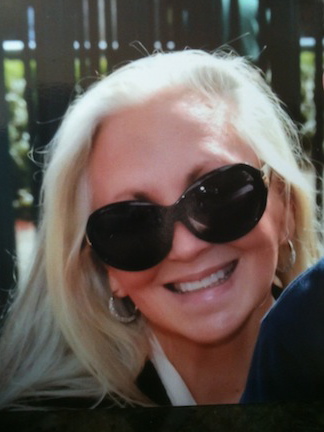
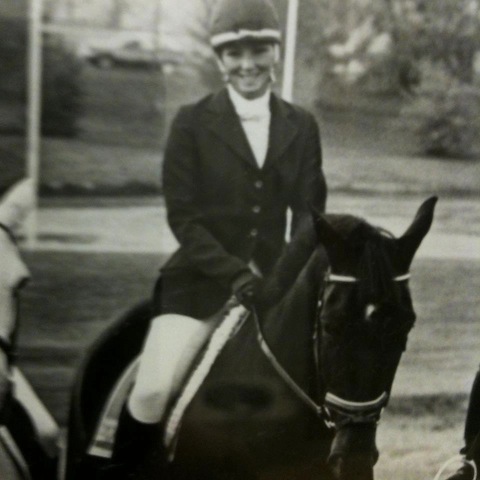
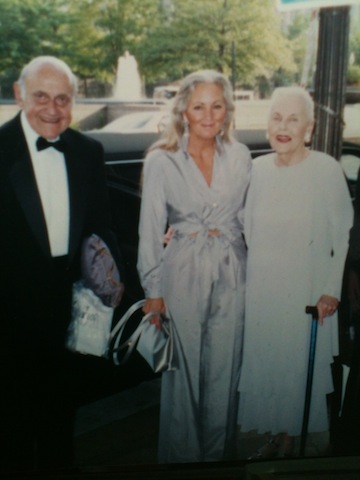
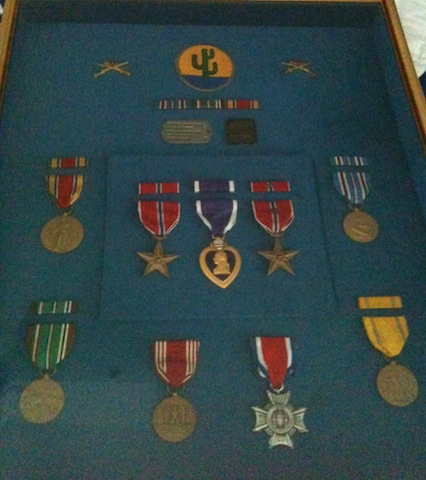
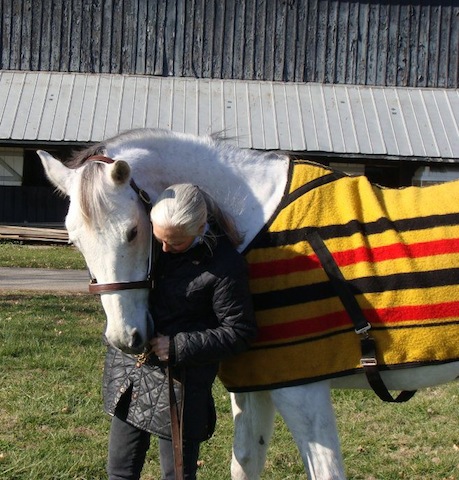

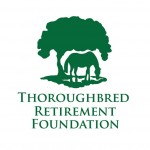
Don’t know how this was missed. Have been a fan of Ann Banks since first meeting her many years ago at the races. Should have known an apple doesn’t fall far from the tree. The older I get the more obvious it is these kind of people are rare birds. Quietly she has helped people when they have been down. She is admired and respected by all who know her.
Totally agree with Fiona and Janice above. Being a good steward doesn’t take anything but a strong sense of justice and doing what is right for those who cannot care for themselves. Being grounded in reality and speaking up when necessary are NOT difficult when it comes to the best path to choose with our racehorses. Ann’s philosophy comes from having a wonderful father whose legacy is visible every day at Wild Aire Farm. A beautiful story about a beautiful lady, Susan. Thank you.
Amen, thank you Ann for stating what if you are a hands on owner you see every day. Trainers who aren’t horsemen–too many horses, relying on medication, not listening to the horse. I have brood mares, a couple who were rescued, who raced 69, 89, 47 times and retired sound at seven or eight. These are the kind of individuals who should be in the gene pool. They all won races, but not the big stakes. The level at which a horse runs depends on many factors–connections, trainer, etc. How long they run, how sound they stay are factors intrinsic to the individual. How much they earn anymore seems to be the major criteria for selecting breeding stock.
Janice – amen to your comment. I agree that the hard knocking horses who raced often and retired sound should be the backbone of a breeding program. Earnings and stakes winnings are pretty much the only criteria used now to select a mare. She may have only run 3 – 4 times. Her success was perhaps dictated by her connections who had money to get her into the hands of top trainers and pay entry fees in races that “mattered”. I often wonder when I look at the fractions of horses racing in lower level claiming or allowance racing why they too could not be in top competition when their fractions and Beyer indexes are probably higher that the spot-lighted horses racing. I have a share in a hard knocking mare who was a “real” race horse. she was tough determined and hated being headed. She has the heart and temperament to pass on to her progeny and hopefully we will find out next year whether she has or not. I lament that there are not more horseman on the backstretch and celebrate those trainers/grooms/owners and other connections who are.
Where to begin. I am in awe. We all have so much to learn from leaders like Ann Banks and her father. The last Q/A helps me realize how the discussion of medications is in part a distraction from solving the larger, more complex problems that Ann brings up. Right on! Thank you Susan.